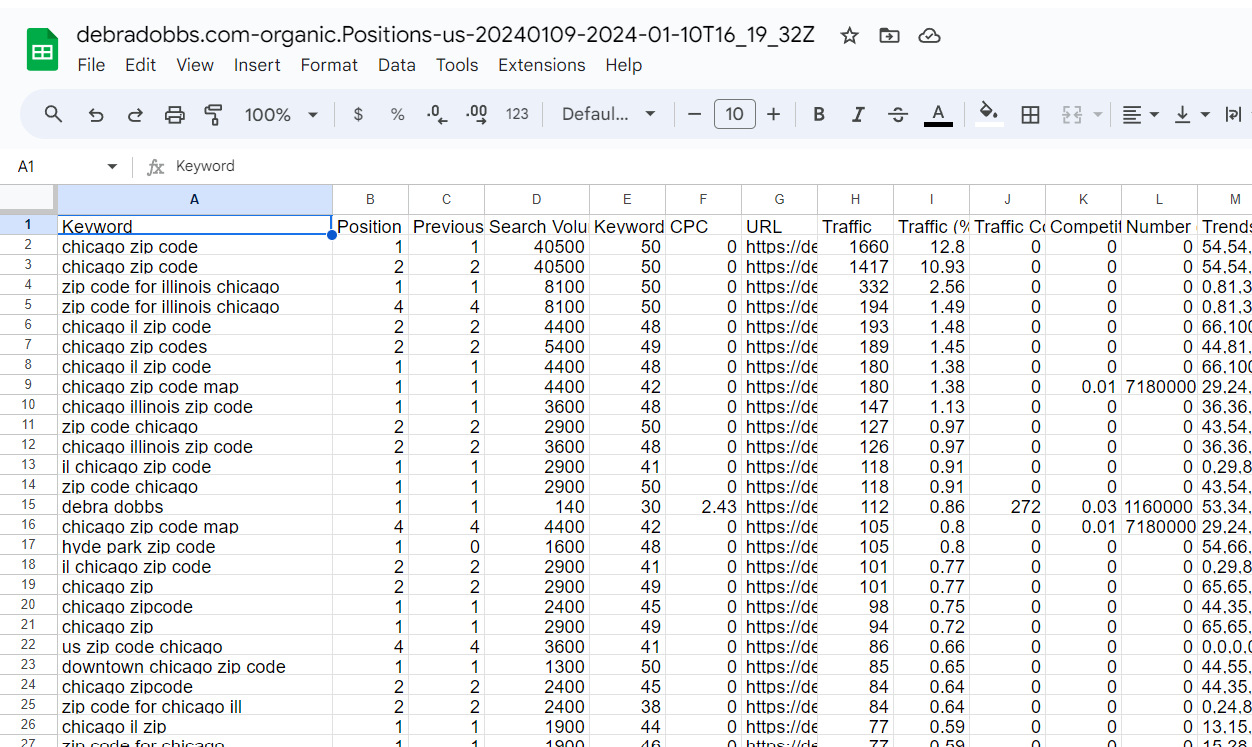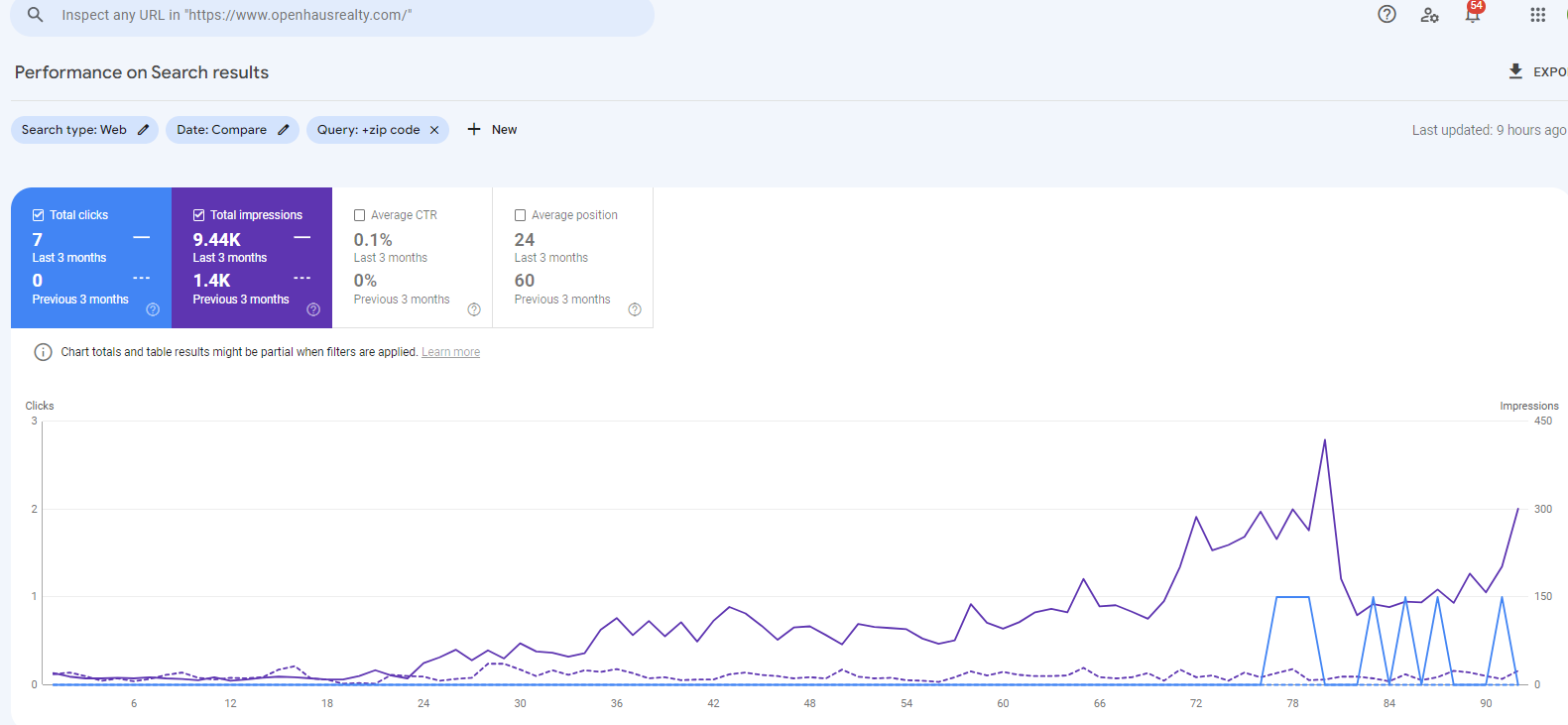Think your website can’t compete with the big portals? SEO expert David Marden writes that, with smart keyword planning, you can find your place in online search results.
It’s Marketing and Branding Month here at Inman. As we enter a competitive spring selling season, let’s examine which tried-and-true tactics and cutting-edge innovations are getting deals done in today’s market. We’ll also be recognizing the industry’s marketing and branding leaders with Inman’s Marketing All-Star Awards.
In the fiercely competitive world of real estate, getting ahead of the competition is crucial. While some competitors may be generating more organic traffic, it’s essential to remember that quantity sometimes translates to quality.
Search engine optimization (SEO) is the secret weapon that can help a real estate domain outrank competitors and attract high-quality organic traffic. Strategic SEO efforts, including keyword research and implementation and leveraging Google Search Console, can make all the difference in outperforming your rivals.
Keyword research: The foundation of SEO
Keyword research is the cornerstone of any successful SEO strategy. Understanding what potential clients are searching for in the real estate industry is paramount. It involves identifying the relevant keywords and phrases that potential buyers, sellers or renters use when looking for properties.
The top searched real estate-related queries in your market may be too difficult to rank for as a newer website since national portals like Zillow and Homes.com will have a very strong hold on those.
Instead, the first step should be to analyze the domains of the successful real estate brokers in your market to see which keywords or search queries drive traffic to their websites.
Here’s what you should be looking for:
- Competitor analysis: Analyze the keywords your competitors are ranking for. Tools like SEMrush or Ahrefs can provide insights into their strategies and help you identify gaps in your own keyword targeting.
- Local keywords: Real estate is inherently local, so focus on keywords specific to your location. Include neighborhood names, landmarks and other relevant geographical terms.
- Long-tail keywords: While highly competitive keywords may drive traffic, it’s often the long-tail keywords that convert better. For instance, instead of targeting “homes for sale,” consider optimizing for “Victorian homes for sale in [your city],” and create some content about Victorian Homes. Then you will start to see organic traffic from potential homebuyers interested in buying a Victorian home.
Implementing keywords for increased organic traffic
Once you’ve conducted comprehensive keyword research, it’s time to put those keywords to work and optimize your real estate domain.
Here’s how:
- On-page optimization: Incorporate keywords naturally into your website’s content, including property descriptions, blog posts and meta tags. Avoid keyword stuffing, as it can hurt your rankings.
- Quality content: Create valuable, informative and engaging content. Regularly updating your blog with articles about local real estate trends, market insights and neighborhood guides can help attract and retain organic traffic.
- Mobile optimization: Ensure your website is mobile-friendly, as Google prefers mobile-responsive sites in search results.
- User experience (UX): A seamless user experience, with fast-loading pages and intuitive navigation, can lead to higher user satisfaction and better rankings.
The value of organic traffic
While paid advertising can bring in quick results, organic traffic has its own unique advantages:
- Cost-effective: Unlike paid advertising, organic traffic doesn’t require ongoing expenses. Once you achieve high rankings, you can continue to attract visitors without additional ad spend.
- Credibility and trust: Users see organic search results as more credible. High rankings imply that your website is a trusted source of information in the real estate industry.
- Sustainable growth: SEO efforts tend to build over time. As your domain authority and ranking improve, so does your ability to attract more organic traffic.
Google search console: A valuable SEO tool
Google Search Console is a powerful tool that can provide insights into how your website is performing in Google’s search results. It offers various features for optimizing your site’s SEO:
- Performance reports: Monitor how often your site appears in search results, the click-through rates and the keywords driving traffic. Use this data to refine your SEO strategy.
- Index coverage: Identify and fix any indexing issues that may be affecting your site’s visibility on Google.
- Sitemaps: Submit XML sitemaps to help Google crawl and index your website efficiently.
- Mobile usability: Check for mobile usability issues, as mobile-friendliness is crucial for SEO success.
Example keyword research: Debra Dobbs (one of Chicago’s top agents for the past 15-plus years)
Competitors’ traffic:
- How we can take traffic from competitors’ websites: Debra Dobbs: keyword research shows an estimate of where the organic clicks come from.
- Debra Dobbs has been getting a lot of ZIP code-related keyword positions, so I created a blog on ZIP codes to start taking some of her domain traffic.

Blog post for Jan. 11, 2024: Gain impression share for search queries containing “ZIP code,” which gained 574 percent-plus in less than four weeks and the average keyword position for “ZIP code” moved up three spots from 60 to 24 and achieved seven organic clicks.
Note: In the previous 28-day period (prior to the article being written), the Openhausrealty domain received over 1,000 organic clicks, but none included the keyword “ZIP code.”

In the competitive real estate landscape, SEO is the key to outranking competitors who may generate more organic traffic. Keyword research, strategic implementation, and leveraging tools such as Google Search Console can help you build a sustainable and successful online presence.
Remember, in the world of SEO, quality and relevance often triumph over sheer quantity. By optimizing your real estate domain for the right keywords, you can attract high-quality organic traffic that will lead to greater success in the long run.
David Marden is a third-generation real estate professional with 20+ years of experience and has mentored some of Chicago’s top real estate professionals. Connect with Marden on Instagram and Linkedin.





